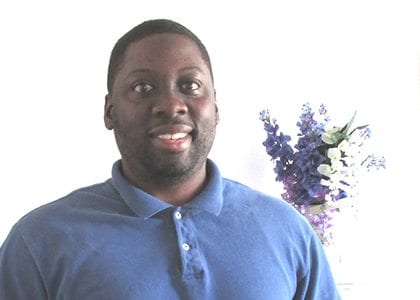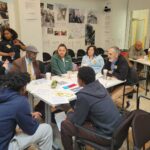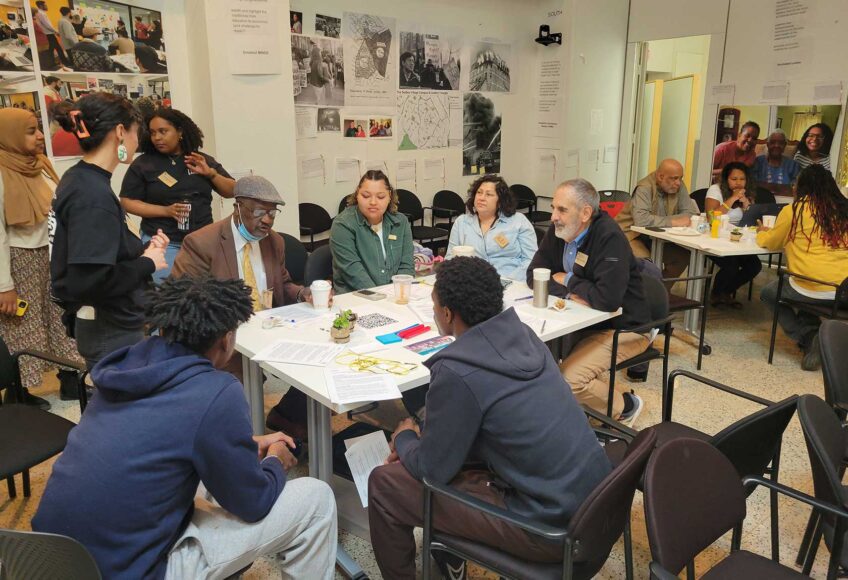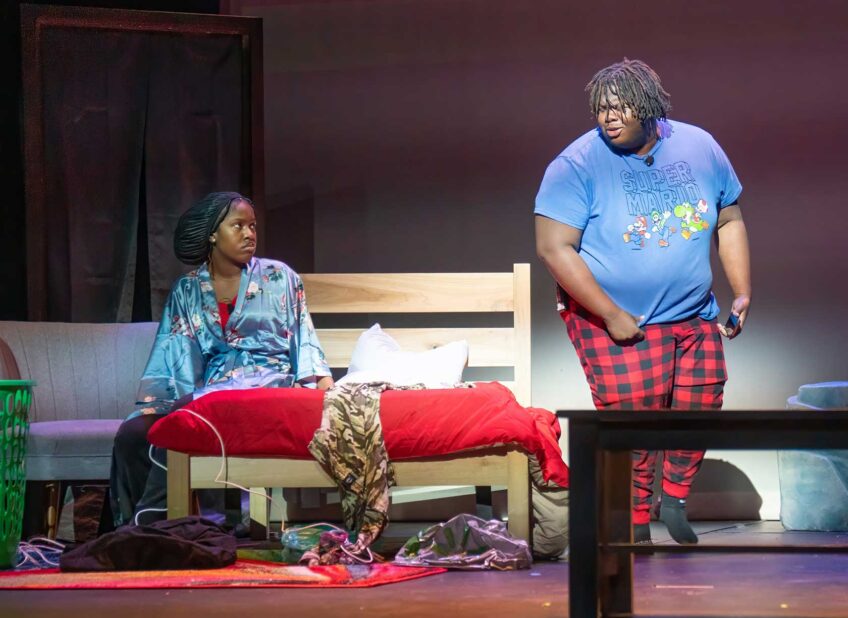
The Massachusetts branch of the Volunteers of America are offering free services to homeless and at-risk veterans at their annual Massachusetts Stand Down event on Friday, August 22 at the IBEW Local 103 hall in Dorchester.
“The VA will be providing information on housing, employment, and legal assistance, along with education, counseling, food stamp information, HIV/AIDS resources, ID and driver’s license renewals and other medical care information,” Congressional Black Caucus Veteran Brain Trust Ron Armstead said. “We brought this concept here in 1993 in order to coordinate all the necessary care veterans may need in one spot. We start off with housing and work our way through the list of services. But they obviously need a place to live first and foremost.”
Armstead estimated that there are some 30,000 veterans on the streets in Massachusetts. A fundamental shift in policy focusing on housing vouchers has changed the way the VA approaches the issue of getting veterans back on their feet.
“Something like the housing vouchers, which are not the same as Section 8 vouchers, are a big help, but they don’t solve everything. But we’ve seen mass foreclosures and high unemployment in veterans living in communities of color like Dorchester, Roxbury and Mattapan.”
Armstead said that on a national level, blacks make up about 40 percent of the homeless veteran population, even though they make up 10 percent of the overall veteran population.
“We’ve had no successful answer for the last 20 years,” Armstead said. “It has reached as high as 50 percent without explanation. But we’re battling this scourge. ‘Homeless’ and ‘veterans’ should not exist in the same sentence.”
The veterans who come to the VoA for help are from every walk of life, military branch, era, age and gender. The spectrum of their struggles range from someone in need of a few connections to get them going to those with addiction and mental health issues.
Massachusetts VA Director of Development Stephanie Paauwe said that the number of homeless veterans has been in decline for the last four years.
“It’s difficult to get a solid count of people on the streets or in a shelter,” Paawue said. “If you’re staying on a friend’s couch or in your parent’s basement, that’s not your home. It’s not just the common thought of people living under the highway. There are lots of places for vets to stay, but it’s not the place to put your stuff or have a mailing address, which you need to get a job.”
Outreach specialist and case manager Orson Buckmire said that focusing on the issue of finding a veteran a home is the foundation to aiding them in other realms where they may struggle.
“We primarily work with housing, homeless veterans and veterans who are at risk of losing their apartments. We step in to talk with the property manager or the landlord and let them know that their tenant is working with us so that he can get on the right track to move forward.”
Buckmire said that the most common deficiencies with the veterans coming across their desks is the lack of information regarding resources to which they are entitled.
“We’ve seen it with families living in cars, living in inhospitable housing with roaches, no heat, you name it. If I haven’t seen it, one of my coworkers has,” Buckmire said. “A lot of them don’t consider themselves veterans or have been deemed a non-veteran. The state of Massachusetts has its own definition of a veteran. The VA has its own definition of a veteran. We have our own definition. All it takes is one person to say ‘you’re not a veteran’ and that they’re out on their own trying to do it alone. Then they’re stuck in a cycle.”
Buckmire knows firsthand the struggles ahead of a returning veteran, having served as an Army medic in Iraq, where he worked in the busiest trauma center in Baghdad. He worked on soldiers of every rank, civilians and insurgents as well. After he returned, he bounced around from Kentucky, Atlanta, back to Boston, Texas, and Colorado, before returning to Boston. He said he had to begin his life from scratch, which many veterans find themselves facing if they don’t have a post-service plan.
“Returning to civilian life is a cold snap,” Buckmire said. “You’re used to knowing your schedule. If you don’t know, someone else does. So after you do 35 push-ups, you’re gonna find out where you need to be. You develop a routine right down to your boot laces, how you park your vehicle, where you keep your pen. And all of that is gone the moment you walk out of there.”
Adjusting to post-war life without developing an addictive habit or suffering from mental health is still a jarring experience. Large crowds, closed quarters, loud noises and the news are things Buckmire will avoid every possible chance. He burned his hand a few days ago and the smell of burning flesh triggered a flashback, which is not uncommon for anyone who has seen combat. Seeing a report that ISIS is marching on Baghdad rocked him to the core, triggering nausea and conjuring a familiar scent of the battlefield. He described the process of holding it together is an all-day affair.
“Barring any injury or casualties, I think it’s harder to try and navigate the ins and outs of normal civilian life than getting out of a combat situation because you know what to do. You train for that,” Buckmire said. “Once you’re out, you’re left to your own devices. That’s what these guys are facing when they’re on the streets. But now we’re home and it’s time to help each other heal. Time to clean up the mess.”
Though he doesn’t keep count of the amount of veterans he has helped, he can remember the first one he ever helped. It took upwards of six months of working with this man, who was in need of significant mental health treatment. Buckmire said that the experience of seeing his first successful attempt at helping a fellow soldier resonated so greatly with him, he can remember what day of the week the breakthrough occurred. That experience propelled him to reach out to more people in need.
“Seeing someone get to a better place is an incredible feeling. To take a person who is homeless, living on the streets and putting them in a place and finding a way to help them make their way is a great feeling. We try to put them in a position to succeed. Helping people out of a rough patch is more than just our job. It’s our duty to our fellow vets.”
More information on the Stand Down is available on the Volunteers of America’s web page.





